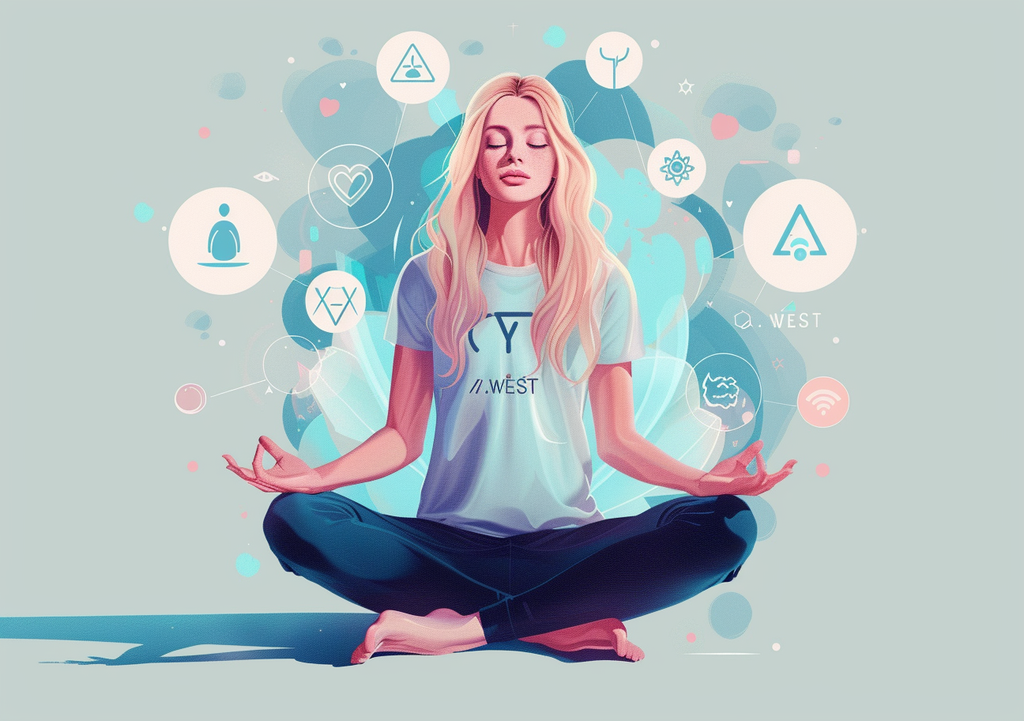As a naturopath, I have spent years studying and practicing natural therapies and lifestyle changes that can help manage anxiety and depression. This guide is designed to provide an overview of these practices and offer practical tips for incorporating them into your daily life.
Key Takeaways
| What are natural therapies for anxiety and depression? | Exercise, meditation, mindfulness, yoga, aromatherapy, massage therapy, spending time in nature. |
|---|---|
| What dietary changes can help? | Prioritizing a balanced diet rich in fruits, vegetables, whole grains, lean protein, and healthy fats. Limiting processed foods, sugar, and caffeine. |
| What lifestyle practices are beneficial? |
Getting enough sleep, maintaining healthy social connections, practicing relaxation techniques, and stress management.
|
| When to seek professional help? | If symptoms are severe, persistent, or interfere with daily life. |

Managing Anxiety and Depression with Natural Therapies and Lifestyle Changes
-
Natural therapies and lifestyle changes can be effective in managing anxiety and depression.
-
Dietary changes, exercise, and mindfulness practices are some of the lifestyle modifications that can help.
-
Herbal remedies and supplements can also provide relief from symptoms.
- Always consult with a healthcare professional before starting any new treatment regimen.
Understanding Anxiety and Depression
Anxiety and depression are common mental health conditions that affect millions of people worldwide. Anxiety manifests as excessive worry, fear, and physical symptoms like rapid heart rate, sweating, and difficulty breathing. Depression presents with feelings of sadness, hopelessness, loss of interest in activities, and changes in sleep or appetite. While the causes can vary, a combination of biological, psychological, and social factors often play a role.
Natural Therapies: Harnessing the Body's Healing Power
-
Exercise: Regular physical activity is a potent mood booster. Exercise releases endorphins, natural feel-good chemicals that combat anxiety and elevate mood. Aim for at least 30 minutes of moderate-intensity exercise most days of the week. Brisk walking, swimming, dancing, or cycling are all excellent options.
-
Meditation and Mindfulness: These practices cultivate present-moment awareness and emotional regulation. Mindfulness meditation allows you to observe your thoughts and feelings without judgment, reducing rumination and negative self-talk. Consider guided meditations or mindfulness apps to get started.
-
Yoga: Combining physical postures, breathing exercises, and meditation, yoga offers a holistic approach to managing anxiety and depression. Yoga promotes relaxation, improves sleep, and fosters emotional well-being. Several yoga styles cater to different fitness levels.
-
Aromatherapy: Inhaling essential oils like lavender, chamomile, and bergamot can promote relaxation and ease anxiety symptoms. Diffuse essential oils or add a few drops to a warm bath.
- Massage Therapy: Massage reduces muscle tension, promotes relaxation, and improves sleep quality – all factors that contribute to managing anxiety and depression.

Dietary Tweaks for Emotional Wellness
-
Prioritize a Balanced Diet: Nourish your body with a diet rich in fruits, vegetables, whole grains, lean protein, and healthy fats like those found in avocados, oily fish, and nuts. These foods provide essential nutrients that support brain function and neurotransmitter production.
-
Limit Processed Foods: Processed foods often contain high levels of sugar, unhealthy fats, and refined carbohydrates, which can worsen mood swings and exacerbate anxiety and depression.
-
Minimize Sugar Intake: Excessive sugar consumption can disrupt blood sugar levels, leading to mood crashes and increased anxiety. Opt for natural sweeteners like stevia or monk fruit extract.
-
Stay Hydrated: Dehydration can negatively impact mood and cognitive function. Aim to drink plenty of water throughout the day to stay hydrated and support overall well-being.
-
Increase Omega-3 Fatty Acids: Foods rich in omega-3 fatty acids, such as salmon, flaxseeds, chia seeds, and walnuts, can help improve mood and brain function.
-
Eat More Fruits and Vegetables: These are packed with vitamins, minerals, and antioxidants that can help improve mental health. Try to include a variety of colors in your diet to get a wide range of nutrients.
-
Include Lean Proteins: Foods like chicken, turkey, fish, eggs, and tofu provide the amino acid tryptophan, which is converted into serotonin, a mood-regulating neurotransmitter.
-
Limit Caffeine: While a small amount of caffeine can boost mood, too much can increase anxiety levels.
- Include Complex Carbohydrates: Foods like whole grains, brown rice, oats, and legumes are rich in fiber and can help regulate blood sugar levels, leading to improved mood.
A Naturopath's Recommendation
Lifestyle: Good nutrition goes hand in hand with balanced lifestyle - it is just as important to make time for stress management such as self care, to truly unwind; prioritize sleep, get in daily movement and make time to plan your weekly meals! This makes sticking to an 80/20 healthy eating pattern much easier and more efficient (not to mention cost effective!).
Lifestyle Practices for a Calmer You
-
Sleep Hygiene: Prioritizing quality sleep is crucial for emotional health. Establish a regular sleep schedule, create a relaxing bedtime routine, and ensure your bedroom is dark, quiet, and cool for optimal sleep.
-
Social Connection: Social isolation can worsen anxiety and depression. Nurture healthy relationships with loved ones, engage in activities you enjoy, and consider joining a support group to connect with others who understand your experiences.
-
Relaxation Techniques: Deep breathing exercises, progressive muscle relaxation, and visualization can help calm the nervous system and manage stress. Practice these techniques regularly for optimal benefit.
- Stress Management: Identify your stress triggers and develop healthy coping mechanisms. Consider journaling, spending time in nature, listening to calming music, or practicing hobbies you enjoy.
My Experience as a Naturopath
In my practice, I've seen patients experience significant improvement in their anxiety and depression symptoms by incorporating natural therapies and lifestyle modifications. A young woman struggling with social anxiety found relief through yoga and mindfulness practices. A man experiencing chronic work stress discovered significant benefits from massage therapy and implementing relaxation techniques. These are a few examples, and the key lies in finding what works best for you.

Building Resilience: A Lifelong Journey
Managing anxiety and depression is a continuous process. There will be good days and challenging days. But, by incorporating these natural therapies and lifestyle practices into your routine, you can build resilience and equip yourself with the tools to navigate emotional fluctuations. Remember, self-compassion is essential. Be patient with yourself, celebrate your progress, and seek support when needed.
The Road to Hope and Healing
You are not alone on this journey. Millions of people manage anxiety and depression, and there is hope for healing and a fulfilling life. By embracing natural therapies, making dietary adjustments, and prioritizing a healthy lifestyle, you can take charge of your emotional well-being and create a brighter future.
Additional Tips
-
Explore Expressive Therapies: Art therapy, music therapy, and journaling can provide creative outlets for processing emotions and fostering self-discovery.
-
Lighten the Load: Learn to say no to take on manageable responsibilities and avoid feeling overwhelmed.
-
Challenge Negative Thoughts: Cognitive-behavioral therapy (CBT) techniques can help identify and reframe negative thought patterns that contribute to anxiety and depression. Consider self-help books or consult a therapist trained in CBT.
- Embrace Nature: Spending time outdoors in nature has a calming effect and can reduce stress and anxiety symptoms. Go for walks in the park, hike in the woods, or simply sit outside and soak up the sunshine.

By incorporating natural therapies, dietary adjustments, and healthy lifestyle practices into your routine, you can empower yourself to manage anxiety and depression symptoms and cultivate emotional well-being.
Remember: Natural therapies and lifestyle changes work best alongside conventional treatment plans. If your symptoms are severe, persistent, or interfere with daily life, consulting with a qualified healthcare professional is essential. They can create a personalized treatment plan that addresses your specific needs.







